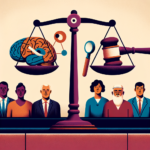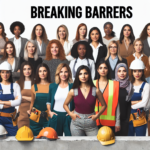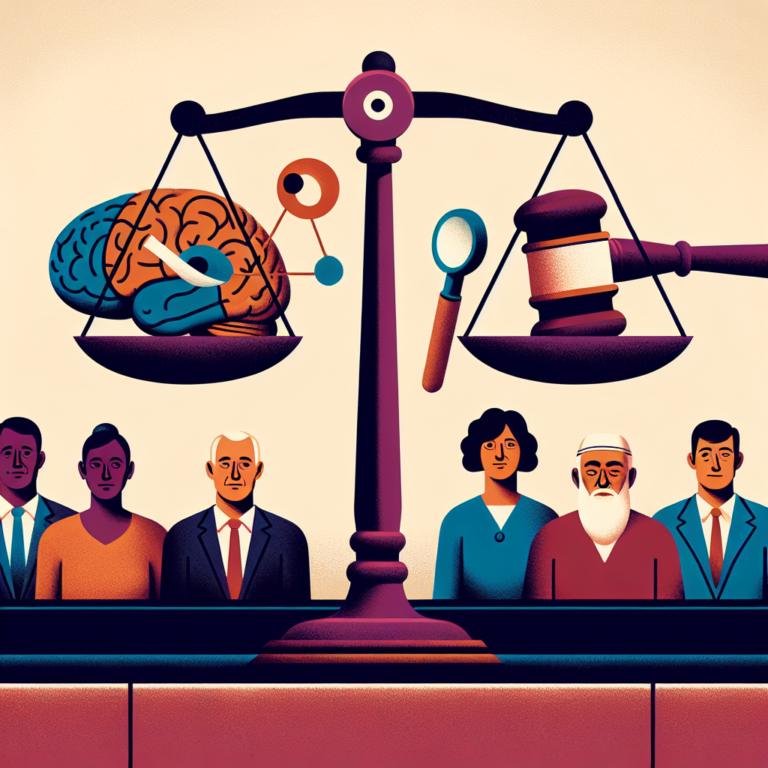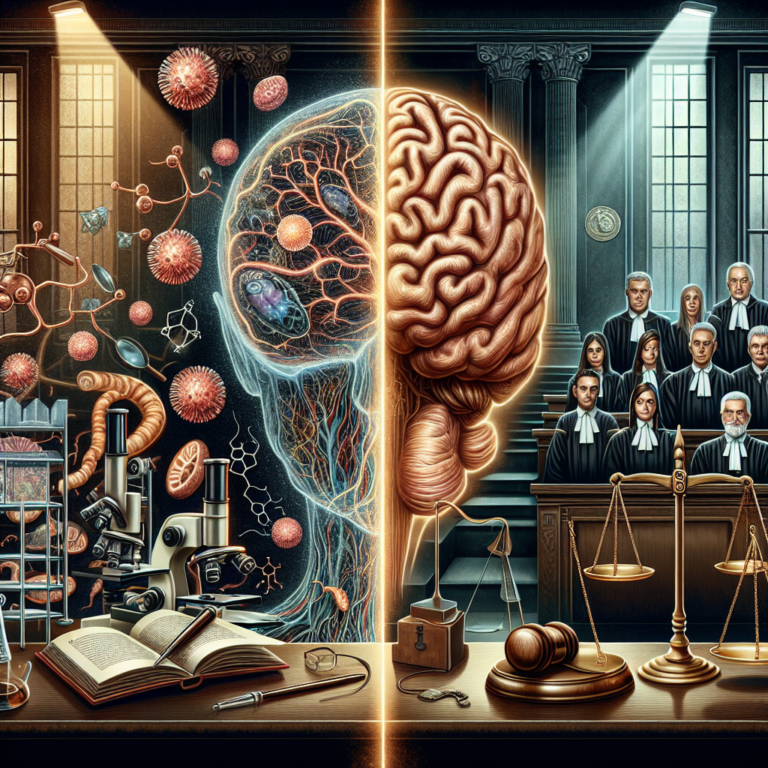
Introduction
Imagine standing before a judge, your fate hanging in the balance, yet not fully understanding the charges against you or the implications of your confession. This unsettling scenario underscores the importance of Miranda competence in protecting defendant rights. The Miranda warning, derived from the landmark U.S. Supreme Court case Miranda v. Arizona (1966), serves as a cornerstone of American criminal justice, ensuring that defendants are aware of their rights before any interrogation. But what happens when these rights are not communicated effectively or understood? Understanding this concept is crucial, not just for legal professionals but for anyone who has a vested interest in justice.
The Foundation of Miranda Rights
What Are Miranda Rights?
Miranda rights inform individuals of their right to silence and their right to an attorney. This dual protection is designed to prevent coercion and ensure that any confession or information provided is done voluntarily and with full awareness. To grasp the importance of Miranda competence in protecting defendant rights, it’s essential to examine how these rights originated and their evolution over time.
Historical Context
The Miranda v. Arizona decision emerged from a troubling era of law enforcement practices characterized by coercive interrogation techniques. Ernesto Miranda was accused of kidnapping and rape, and after two hours of intensive interrogation, he confessed—without being informed of his rights. The Supreme Court’s ruling became a watershed moment, emphasizing that knowledge of rights is instrumental in safeguarding defendants against self-incrimination.
Key Components of Miranda Competence
Comprehension of Rights
For defendants to exercise their rights effectively, they must not only receive the warning but also understand it. This comprehension is intricately tied to various factors such as age, education, and mental capacity.
| Factor | Impact on Comprehension |
|---|---|
| Age | Younger individuals may struggle to fully grasp legal jargon. |
| Education Level | Limited education can hinder understanding complex language. |
| Mental Health | Cognitive impairments can significantly affect comprehension. |
Communication by Law Enforcement
The manner in which law enforcement communicates Miranda rights is critical. Misleading or ambiguous renditions of these rights can lead to invalid confessions, undermining the very purpose they were designed to serve.
The Role of Competence in Legal Proceedings
Holding Law Enforcement Accountable
A pivotal aspect of the importance of Miranda competence in protecting defendant rights is accountability. If a defendant’s rights are infringed upon due to negligence or misconduct by law enforcement, the repercussions can extend beyond individual cases to erode public trust in the justice system.
Case Study: Berghuis v. Thompkins (2010)
In Berghuis v. Thompkins, the Supreme Court ruled that a suspect’s silence does not equate to the invocation of the right to remain silent. This case highlighted how critical it is for defendants to understand their rights actively. Thompkins had remained silent for nearly three hours before responding to police questioning, leading to a confession. The ruling underscored the necessity for defendants to be competent and assert their rights actively.
Mental Health Considerations
Defendant competence is particularly pertinent when mental health issues are involved. Courts must assess whether a defendant can understand and waive their Miranda rights effectively.
Case Study: Indiana v. Edwards (2008)
In this case, the Supreme Court ruled that states could require defendants to represent themselves only if they are competent to stand trial, which includes the ability to understand their Miranda rights fully. This decision emphasizes how mental competency directly correlates with the protection of rights.
The Consequences of Noncompliance
The ramifications of failing to uphold Miranda competence can be severe, ranging from wrongful convictions to the dismissal of vital evidence. When defendants do not comprehend their rights, they may unknowingly surrender protections intended for their defense.
Wrongful Convictions
Georgetown University Law Center reported that misconceptions about Miranda rights are prevalent in the general populace, leading to cases where defendants waived their rights with serious implications.
Example: The Case of Johnnie Lee Baker
Johnnie Lee Baker was wrongfully convicted partly because law enforcement failed to provide a clear Miranda warning. His case exemplifies how the breakdown of Miranda competence can lead to unjust outcomes.
Dismissal of Evidence
Courts often rule that any confessions made under unclear circumstances are inadmissible. This principle reinforces the importance of Miranda competence in protecting defendant rights, as it protects innocent individuals from being convicted based on flawed processes.
Enhancements to Miranda Practices
Training for Law Enforcement
To reinforce the importance of Miranda competence in protecting defendant rights, law enforcement agencies need comprehensive training programs that focus on clear communication, the necessity of comprehending rights, and recognizing individual vulnerabilities, especially in populations with cognitive impairments.
Standardized Miranda Warnings
Implementing standardized, plain-language Miranda warnings can substantially improve comprehension rates among defendants. States should consider regulations that compel law enforcement to provide these warnings in both verbal and written forms.
Use of Technology
Innovative solutions such as apps that explain Miranda rights in simple terms could bridge the comprehension gap. Visual aids or interactive systems can help demystify these rights for those in custody.
The Impact of Public Awareness
Community Outreach Programs
Fostering a broader understanding of Miranda rights among the public can ensure that individuals know their rights, leading to a more informed citizenry. Schools, community centers, and online platforms can serve as venues for educating people about their constitutional rights.
Role of Advocacy Groups
Organizations such as the American Civil Liberties Union (ACLU) advocate for defendant rights and promote awareness of the importance of understanding Miranda warnings, furthering public discourse on this vital topic.
Conclusion
Understanding the importance of Miranda competence in protecting defendant rights is more than just a legal obligation; it reflects the ethical commitment of the justice system to ensure fairness. By acknowledging the intricacies of defendant rights and fostering comprehensive knowledge, we can build a more equitable legal landscape. Individuals must be equipped to recognize and exercise their rights, ensuring that justice is served not only in theory but in practice.
FAQs
1. What are Miranda rights?
Miranda rights are legal warnings given to suspects in custody, informing them of their right to remain silent and to have an attorney present during interrogations.
2. Why are Miranda rights important?
They protect against self-incrimination and ensure that confessions are made voluntarily and with an understanding of legal rights.
3. What happens if Miranda rights are violated?
If they are violated, any confession or evidence obtained may be deemed inadmissible in court, potentially impacting the case outcome.
4. How does mental health affect Miranda competence?
Mental health issues can significantly impair a defendant’s ability to comprehend their rights, necessitating careful assessments by the courts.
5. What can law enforcement do to improve understanding of Miranda rights?
They can provide clear, concise explanations of rights, use plain language, and ensure that they assess the mental competence of suspects before interrogations.
By staying engaged with the complexities surrounding the importance of Miranda competence in protecting defendant rights, we can better advocate for a just legal system that respects and upholds the rights of every individual. Whether you’re a legal professional, a law student, or simply someone passionate about justice, understanding and promoting this vital aspect of the law is essential.















